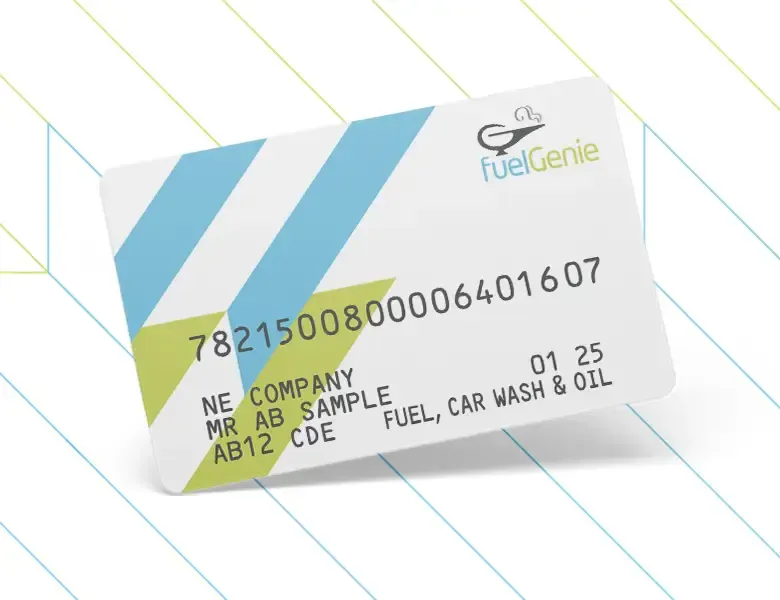Fuel cards provide a way for people working within an organisation to pay for petrol and diesel without reaching into their own pocket. Instead, the company is charged. But unlike company debit or credit cards, fuel cards can only be spent on these specific expenses.
You may be wondering whether it’s worth signing up for fuel cards if your organisation already uses pay and reclaim or company bank cards. Here we consider some of the key factors to consider when deciding whether a fuel card will be worth your while.
Fuel expenditure
At first, it may not seem obvious that using fuel cards can have an impact on the expenditure of fuel itself – after all, it’s just another way of paying for the same thing, isn’t it?
In fact, a clever choice of fuel card can reduce the costs of fuel for your business. fuelGenie, for example, works exclusively with low-cost supermarket forecourts.
Are there any additional costs with a fuel card?
In short, that depends on which fuel card you choose. Unlike many fuel cards, fuelGenie does not charge fees for normal usage.
Other cards may charge some or all of the following: fee per card issued, annual fee, network service fee, convenience charges, invoice charges and risk-based fees.
Other employee expenses
Unlike both pay-and-reclaim and company bank cards, fuel card spending can be controlled at the point of use by restricting what the cards can be used to pay for. In addition to petrol and diesel, fuelGenie cards may also be authorised to cover other vehicle-related costs, such as car washing.
Beyond this, however, other expenses are not covered, helping companies to ensure they are only incurring the costs directly associated with fuelling up.
Administrative costs
Using a fuel card can greatly reduce administrative and accounting time and costs. Under a pay and reclaim system, employees must keep and provide their receipts, which then have to be processed and refunded by the finance or accounts team. All of this administration can be eliminated by using a fuel card such as fuelGenie, which employees use to pay directly.
fuelGenie then stores all your transactions in an online dashboard, which you can access securely at any time. Each month, a total invoice is automatically generated, doing away with the need for collecting paper receipts. What’s more, the invoices are HMRC-approved format, making it simple and easy to submit VAT reclaims.
Tax implications
Generally speaking, businesses can avoid any tax implications by following the simple principle: fuel cards must only be used to pay for fuel which is a business expense i.e. incurred when travelling in the course of their work. That means employees must not use it to pay for private travel, including journeys to and from work.
By doing this, you avoid the fuel card becoming a taxable benefit. In effect, it acts just like a company card as a way to cover business expenses.
Are fuel cards worth it?
We believe that fuelGenie can benefit any business looking to better control and manage fuel spending, thanks to:
- Savings of 3p+/litre by directing drivers to low-cost supermarket petrol stations*
- Completely free – no card or transaction fees
- 24/7 online dashboard for easy management and admin
- HMRC-approved invoices for easy VAT reclaim
- Competitive credit facility with no minimum spend
- Unlimited number of free fuel cards
- Drivers can also gain personal reward points using supermarket loyalty cards

